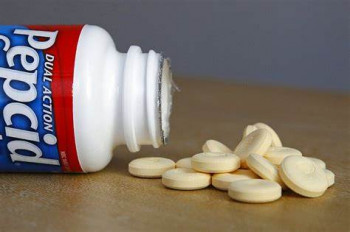Do You Need To Taper Or Wean Off Metoprolol?
If taken chronically, it is generally recommended to slowly taper metoprolol to decrease the risk of adverse events.

Question
What is the safe way to discontinue Metropolol after several years of taking it with Eliquis (for my mild A-Fib)? I am experiencing acute leg swelling and discoloration. I also have a number of other side effects as you have listed on your site.

Answered by Dr. Brian Staiger, PharmD
Medical Content Reviewed By HelloPharmacist
Staff
Last updated Jun 25, 2025
Key points
- Beta-blockers are generally recommended to be slowly tapered as opposed to stopping abruptly. Abrupt discontinuation can increase the risk of side effects.
- Strategies for tapering (i.e., weaning) off metoprolol vary, but generally, it is discontinued over at least a 1-to-2-week period to reduce the risk of side effects.
Answer
Metoprolol, a beta-adrenergic antagonist (also known as a 'beta-blocker'), is generally recommended to be tapered (step-wise dose decreases) if you have been taking it chronically.
Stopping metoprolol abruptly, or 'cold-turkey' can exacerbate chest pains and could potentially increase the risk of heart attack and other symptoms.
Per the prescribing information for Lopressor (metoprolol tartrate):
"Following abrupt cessation of therapy with certain beta-blocking agents, exacerbations of angina pectoris and, in some cases, myocardial infarction have occurred. When discontinuing chronically administered Lopressor, particularly in patients with ischemic heart disease, the dosage should be gradually reduced over a period of 1-2 weeks and the patient should be carefully monitored."
The recommendation to gradually discontinue metoprolol is generally true for all beta-blocker medications, although some are associated with more side effects after abruptly stopping than others. Metoprolol ER (metoprolol succinate) has less side effects associated with it (versus metoprolol tartrate) because it is longer acting.
Potential Side Effects From Abrupt Discontinuation
Sudden discontinuation of beta-blockers is particularly dangerous if treating coronary artery disease. Potential adverse effects include:
- Angina (chest pain)
- Myocardial infarction (heart attack)
- Arrhythmias
- Anxiety
- Tachycardia (increased heart rate)
How Long To Taper
Most sources, and prescribing information inserts for all beta-blockers recommended tapering gradually over a 1-2 week period to reduce the risk of adverse effects.
If withdrawal symptoms do occur, even with a gradual taper, it can be beneficial to reinstate therapy at your previously well-tolerated dose and decrease more slowly.
Guidelines for the 'Diagnosis and Management of Patients with Stable Ischemic Heart Disease' suggests tapering beta-blockers over a 3-week time period in those who have experienced a prior heart attack and have nitroglycerin available for symptoms of chest pain.
It is important to discuss how to properly discontinue metoprolol with your doctor. There is no 'single' recommendation and a tapering protocol will be based on your current medical situation. Additionally, it is prudent to be monitored for side effects.
About Metoprolol
Metoprolol is available in both immediate and extended-release formulations.
Toprol-XL (metoprolol succinate) is the extended-release version and Lopressor (metoprolol tartrate) is the immediate-release version.
Metoprolol is a beta-blocker. It differs from some other beta-blockers, such as propranolol, in that it is beta-1 selective. These types of beta-blockers are also known as 'cardio-selective'.
'Cardio-selective' beta-blockers tend to cause fewer side effects than non-selective beta-blockers. Non-selective beta-blockers interact with other beta receptors in the body, which are found in the smooth muscle in the lungs, blood vessels, and other tissues.
Lopressor (metoprolol tartrate) is recommended to be administered with food or immediately after a meal to enhance oral absorption.
Toprol XL (metoprolol succinate) may be administered without regard to food.
References
- Lopressor Prescribing Information, AccessFDA
- Discontinuation of beta-blockers and the risk of myocardial infarction in the elderly, PubMed
- 2012 ACCF/AHA/ACP/AATS/PCNA/SCAI/STS Guideline for the Diagnosis and Management of Patients With Stable Ischemic Heart Disease: A Report of the American College of Cardiology Foundation/American Heart Association Task Force on Practice Guidelines, and the American College of Physicians, American Association for Thoracic Surgery, Preventive Cardiovascular Nurses Association, Society for Cardiovascular Angiography and Interventions, and Society of Thoracic Surgeons, ScienceDirect
- Relevance of intrinsic sympathomimetic activity for beta blockers, PubMed
-
 Dr. Brian Staiger, PharmD
Dr. Brian Staiger, PharmD
- 35373 views


